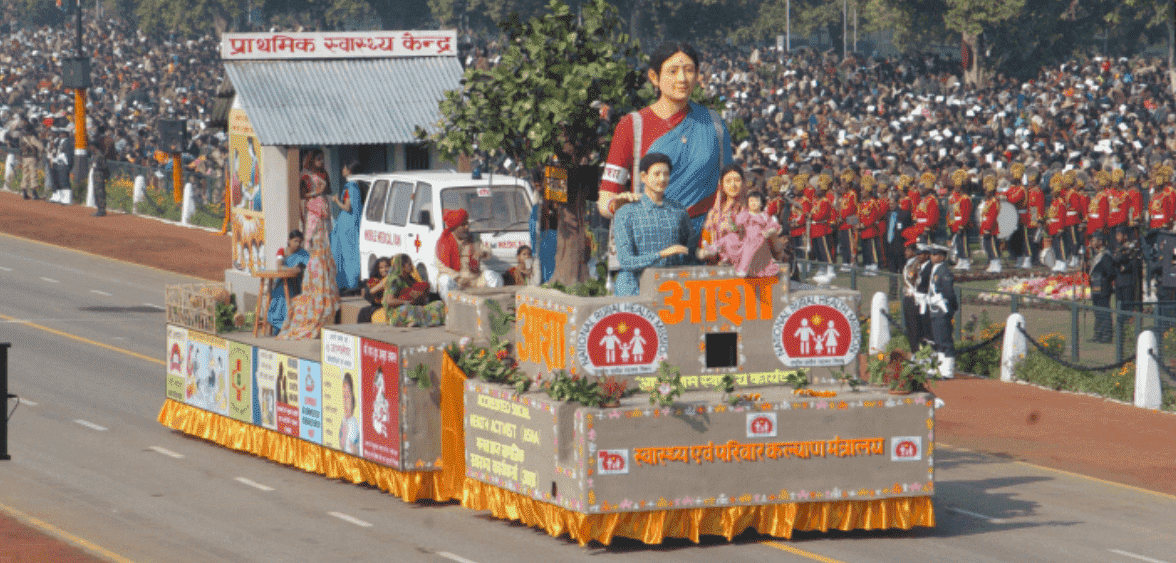
Accredited social health activists or ASHA workers are frontline workers in the Indian public health system who act as a bridge between the government and the public. Constituted under the National Rural Health Mission 2005, ASHA workers are female volunteers – mainly in the age group 25-45 years – who act as community representatives and work with local Public Health Centres (PHCs) and other government organisations in the field of health and nutrition. They are tasked with spreading awareness about maternal and child health, providing primary health care for minor diseases, disseminating information about hygiene and proper nutrition, implementing schemes related to health care and so on. Their contribution has been recognised in making India polio-free and increasing its immunization coverage. During the COVID-19 pandemic, they were given the extra responsibility to conduct surveys in households, spread awareness about basic precautionary measures, and contribute to the vaccination drive. In May 2022, the World Health Organization (WHO) awarded ASHA workers the Global Health Leaders Award as a recognition ‘for their outstanding contribution towards protecting and promoting health’. Having the ability to reach people in the remotest of areas and working at the grass roots to implement many ambitious schemes, ASHAs have become an indispensable part of the public health system in India. Challenges Remain Despite Recognition. Despite the global recognition, many challenges faced by ASHA workers remain unresolved. They are underpaid, have no permanent job, have to work in poor working conditions and are required to carry out additional duties without any incentives. During the Assembly elections in Uttar Pradesh, ASHAs were also put on election duty without any duty letter, due to which they did not receive any remuneration or incentive. The local Public Health Centres (PHCs) exploit them by issuing many verbal orders, and they do not get any incentives for those because these orders do not exist on paper. Unlike other rural health workers like Anganwadi (AWW) and Auxiliary Nurse Midwife (ANM) workers, ASHAs do not have a fixed salary. They are paid on a task/activity-basis and incentives are provided for any additional duty. ASHAs are paid an average of Rs 10,000 per month, but have been demanding that it be increased to Rs 21,000 along with a government employee status. Announcement of an additional Rs 1,000 for COVID-related work was made, but that payment was also delayed. ASHA and Anganwadi workers have held many protests across the country, seeking better working conditions as a recognition for their efforts. In India, where the quality of health and nutrition is low, the dissatisfaction among ASHA workers is alarming. Their role as an intermediary between government agencies and the public is crucial for developing a robust healthcare system in the country. Though recognition of ASHA workers was long due, it should be accompanied by a sustained effort by the society to resolve their concerns.
27 Oct 2022
Ambika Atul Bapat